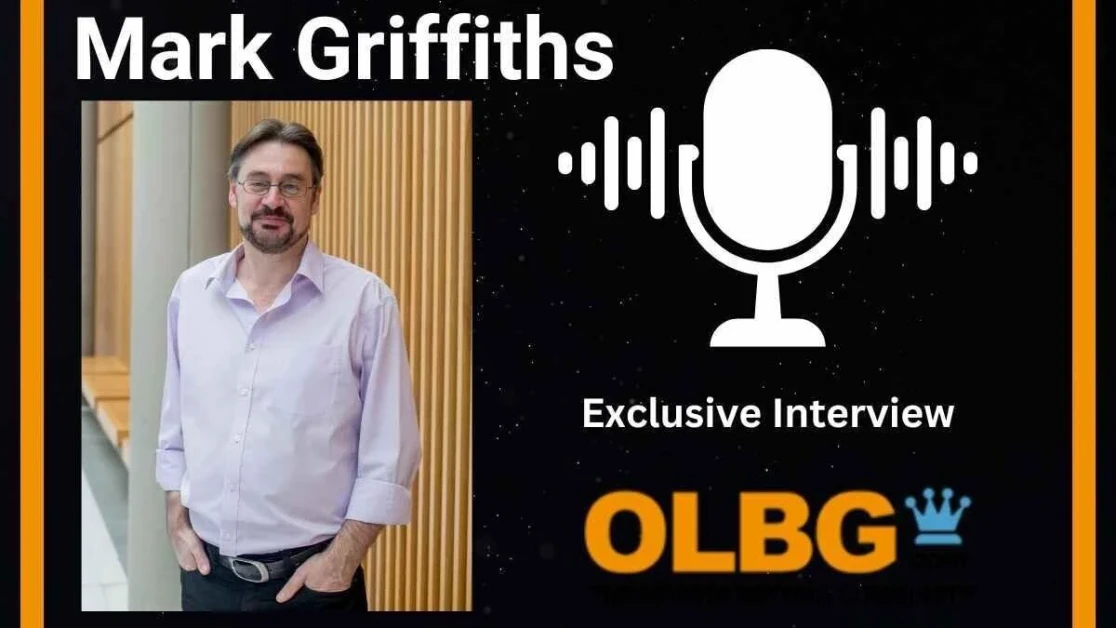
I've spent over 20 years inside the betting industry. I'll guide you to avoid the hype, ignore the noise, and steer clear of the common pitfalls that catch out everyday punters.
‘In moderation, gambling causes few problems’
Sports betting has been under the spotlight over the past few months. In recent times, we’ve seen footballers banned for illegal bets on the game, the FA announce a front-of-shirt gambling advertising ban and the government release a White Paper proposing sweeping changes to gambling legislation.
Among the proposals are financial risk checks for bettors, essentially a formalisation of the affordability checks many sportsbooks have already been asking bettors to comply with over the past year or so.
These checks have been a hot topic in our community, so much so that we sought bettors’ views on the issue when we commissioned YouGov to carry out the very first OLBG UK Gambling Habits Survey earlier this year.
The majority (65%) of the 1,007 people who took part in our survey said they wouldn’t be happy to provide documents such as payslips, bank statements or other documents to gambling operators if asked.
We talked to psychologist Professor Mark Griffiths, who has been a consultant for many gambling companies in the areas of responsible gambling, player protection and harm minimisation, to get his views on how we can ensure bettors can keep enjoying their pastime while also being protected from harm.
OLBG: Do you have any view on the financial risk checks that have been proposed in the White Paper and how they might affect the sports betting market?
Mark Griffiths: In principle, affordability checks are a good idea, but financial limits that apply to everyone may not be. This is particularly relevant at the moment when many people are struggling to make ends meet. Just spending £2 a week on the lottery might be problematic for some people because they have got no spare cash at the moment, whereas somebody else might be easily able to spend £100 a week. The Gambling Commission always talks about the amount of money people are spending, but it is better to talk about how much somebody can afford to gamble as opposed to how much they are actually spending.
I know that many sports betting companies are running credit checks on people and using data from companies like Experian to make judgements about whether people can afford to gamble.
Prof. Mark Griffiths on affordability checks
But the more fine-grained we get about affordability checks, for example, if the Gambling Commission says it wants companies to dig into people’s personal finances, there’s going to come a point where most people won’t want to divulge that kind of information. What they will then do is go and bet with less reputable companies, ones that are not operating within the confines of the regulatory system here in the UK but are instead located offshore with little or no responsibility measures whatsoever. This would just displace the problem.

That is why I would prefer to see the mandatory use of responsible gambling tools or safer gambling tools rather than being very strict on saying no one can spend above a certain limit or everyone must face checks at a certain limit. For me, the way forward is to make it mandatory for players to set time and money limits when they initially sign up with an operator to gamble online.
OLBG: Why would that be preferable?
MG: If gamblers set these limits in the cold light of day based on what they can afford, it doesn’t matter how problematic an activity could be because once they’ve hit their limit, they can no longer gamble.
Generally, I think if someone has been playing consistently for an hour, it should be mandatory that the gambler has a play break and it should be of an appreciable time period so that they can reflect on their gambling.
We did some research on Norwegian gamblers where we compared 90-second, five-minute, and 15-minute play breaks. The 15-minute breaks proved the best in terms of reducing the amount of money people spent when they came back to gamble. In today’s gambling environment, individuals can theoretically gamble 24/7 every day of the year. Therefore, mandatory play breaks appear to be an important responsible gambling tool that operators could implement.
The Impact of Mandatory Play Breaks on Responsible Gambling
When people gambled on sport 10 years ago, if it was football, either you bet on whether someone was going to win or lose and it was typically once a week or maybe twice a week if there was also a mid-week match. The only more continuous forms of sports betting we had then were dog racing or horse racing. Even these were restricted in the sense that you’d have an afternoon of betting on racing, but an individual could probably only place a bet on five or six dogs or horses in one day.
But in-play has revolutionised sports betting by taking a low event frequency form of gambling and turning it into a high event frequency form of gambling. It is theoretically possible to be gambling on sporting events all day every day.
OLBG: Is this increased availability of gambling opportunities why we’ve seen more press about gambling addiction in recent years?
MG: Over the last 20 years the problem gambling rate has been fairly stable at around 0.5%, with the latest figure 0.3%, based on the Gambling Commission’s statistics on participation and problem gambling for the year to March 2023. The vast majority of people who engage in gambling activities have no problem at all. An important point to make is that problem gambling is not the same as gambling addiction. When we do a survey and we talk about the percentage of problem gamblers, the press often turns the words ‘problem gambling’ into ‘gambling addiction’.
As far as I’m concerned – and I don’t think any researcher would disagree with me – what we know is that all gambling addicts are problem gamblers but not all problem gamblers are gambling addicts.
Decoding Addiction: The Complexities of Defining Problem Gambling
When it comes to the term addiction, if you ask 50 psychologists who work in the field of addiction, they will probably all give you a slightly different definition. I have six criteria people have to meet to be defined as having an addiction – I study other addictions as well as gambling – and by my criteria, very few people can actually be classified as having an addiction.
Gambling is on a continuum and ‘problem gambling’ is ill-defined and is usually defined by the particular problem gambling screen that’s been used. There are more than 30 different problem gambling screens out there so we’re not always comparing apples with apples even when we are using the term ‘problem gambling’.

OLBG: There have been some cases of famous footballers disclosing gambling addictions lately. Given many football teams are sponsored by gambling companies and we’ve seen a rise in advertising and marketing generally, is there a causal link?
MG: We have seen a massive increase in advertising and marketing by gambling firms over the last 10 years, but we haven’t seen any appreciable increase in problem gambling whatsoever. This leads some people to argue that we shouldn’t ban advertising and marketing because it has no appreciable effect on the prevalence rate.
Gauging the Impact of Advertising on Problem Gambling: A Call for Stricter Regulations
That might be true, but for those people who are problem gamblers, things like marketing and advertising can prove to be triggers and may well be making the situation more problematic for them. Even though marketing doesn’t appear to increase the proportion of problem gambling, it appears to make problem gambling worse for those already having problems, which has knock-on effects on those around them, including family, friends and work colleagues.
So, there is a debate to be had about whether we should be having so much advertising and marketing. Personally, I think that there should be a definite advertising ban for ads that can be seen by anybody who is underage. We’ve got a situation at the moment with sporting events where gambling operators are allowed to advertise all day during cricket or football. I’ve often sat down with my kids and watched sporting events and the ‘whistle-to-whistle’ ban means that you don’t get adverts at half time but you still get them before and after a game.
OLBG: What do you make of The Guardian’s ban on all gambling ads apart from lottery?
MG: There is some logic to it, but even though The Guardian has said scratchcard promotions are covered by the ban, the fact is the National Lottery sells scratchcards and instant win games. These work on the same operant conditioning principles as slot machine gambling in that basically, if you have the time and the money you can gamble on them again and again and again.
Back in 1996, when the Home Office oversaw gambling regulation, it came up with a definition of ‘hard’ forms of gambling, stating these were forms of gambling that have ‘high or rapid staking’. This was in response to questions at the time over why the National Lottery and football pools were allowed to be advertised on television, but casino gambling was not. I questioned this at the time because the National Lottery had introduced scratchcards in 1995 and I believed they fitted the Home Office’s definition of hard gambling and therefore shouldn’t be advertised on television. In 1995, I published a letter in The Times where I described scratchcards as ‘paper slot machines’.
Bi-weekly lotto games or even daily lotto games are far less likely to cause problem gambling than other types of gambling activities, but when you look at scratchcards or instant win games online, those are potentially much more problematic forms of gambling. While I can see where The Guardian was coming from, some of the National Lottery’s products should be considered as more problematic forms of gambling because they have potentially high event frequencies. If people are influenced by a National Lottery ad, it would be hard to guarantee they would only buy a lotto ticket; they may go to the National Lottery website and play instant win games or go to a store and buy scratchcards.
OLBG: So, the chances of problems occurring are not necessarily linked to a game’s type but its frequency?
MG: The basic rule of thumb is that high event frequency activities tend to be more associated with problem gambling than low event frequency activities. If we go a step back, gambling addiction basically revolves around three separate components: the individual characteristics, the situational characteristics and the structural characteristics. Individual characteristics are things that are inherent in an individual such as a person’s biological genetic predisposition, their personality characteristics, their attitudes towards gambling, beliefs, expectations, etc.

Situational characteristics are things that could be in the environment that might lead to them gambling in the first place, for example, marketing, advertising, where a gambling product is placed in an environment. What I am most interested in are the structural characteristics, the things that are inherent in the gambling activity itself that might have an influence on how and why people develop a problem with gambling. Even though there are well over 60 different structural characteristics, event frequency is the one that is the most important.
If we take something like the National Lottery game, at the moment with the bi-weekly lotto game you only find out the result of your gamble once on a Wednesday night and once on a Saturday night. The event frequency for that type of gambling is twice a week, so it’s very unlikely someone could become addicted to it. However, I could create you a very addictive lottery product where instead of having the draw once on a Wednesday and once on Saturday I would have it every two minutes. It’s too simplistic to say lottery games are not problematic. It depends on the structural characteristics.
OLBG: Some anti-gambling campaigners argue not only for a ban on advertising and marketing, but also for curbs on gambling itself. What is your view on this?
MG: I would be a hypocrite to say we should ban gambling because I like gambling myself. I am only an occasional gambler – I like the odd sports bet and when I go to the casino, I like playing roulette.
I am not in favour of banning or prohibiting an activity that we know to be problematic to a small proportion of the population because that spoils the fun for the vast majority who gamble and actually get lots of enjoyment and excitement out of it, as well as occasionally winning some money.
I have spent 37 years working in this space now and my thinking about gambling has evolved over time. I am not anti-gambling; I am very pro-responsible gambling and pro-safer gambling.
Responsible Gambling Tools: Preventive Measures, Not Aid for Addiction
One thing I’ve noticed is that a lot of people out there see responsible gambling tools as problem gambling tools, whereas for me that is not what responsible gambling tools should be about. Responsible gambling tools are about responsible gambling. Having cooling-off periods or the ability to put a block on an account has nothing to do with problem gambling. These tools are about helping people make good choices. Someone who knows that they are going to drink a lot of alcohol on a night out might put a 24-hour block on their favourite sites so they haven’t got the temptation to gamble online when they come home intoxicated.
We know that a lot of people put a week-long block on their gambling account in the last week of the month, when they are expecting their pay check. In December many people use the month-long block so they aren’t spending money that should be going on Christmas presents. None of these blocks are to do with problem gambling; they are absolutely about responsible gambling.
What we need to do is educate people that just like drinking alcohol, gambling is something that when taken to excess can be very problematic. However, in moderation there are very few problems for those who engage in gambling activities.
Dr Mark Griffiths is a Chartered Psychologist and Distinguished Professor of Behavioural Addiction at the Nottingham Trent University, and Director of the International Gaming Research Unit. He has published over 1,400 peer-reviewed research papers, six books and over 190 book chapters. He has won 24 national and international awards for his research, particularly in the area of gambling.




